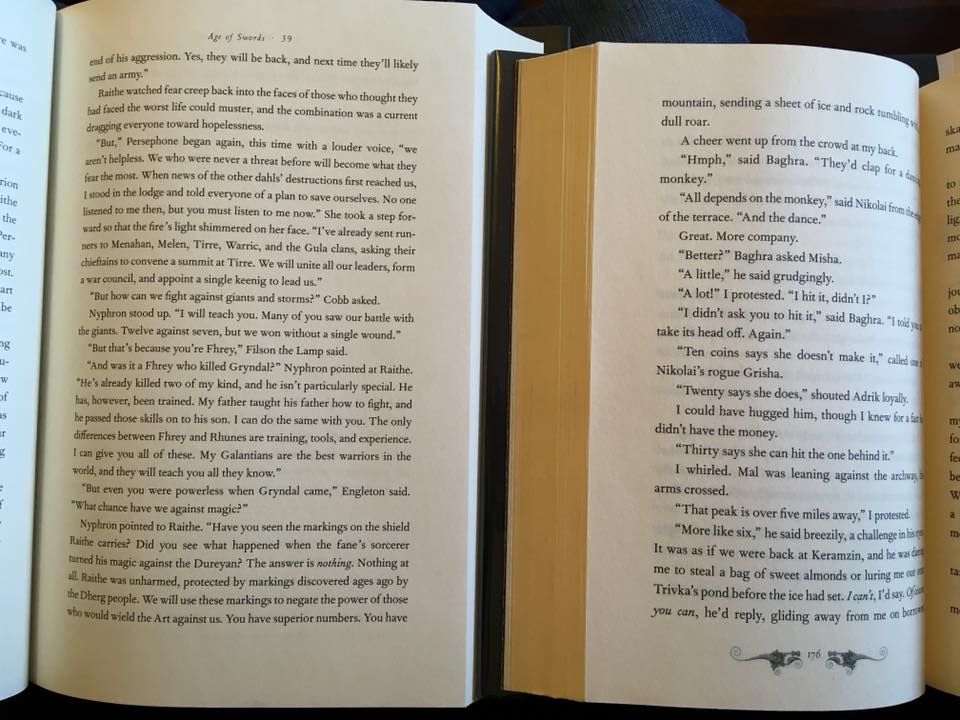
What Makes a Novel? Let’s Talk Word Count.
If you’ve been in the writing community for any amount of time, you’ve probably heard people talk about word count. Whether it be during writing challenges where people talk about how many words per day they’ve written, or discussing whether or not a book’s word count is too high or low for traditional publication, word counts are talked about everywhere among writers.
However, when you’re new to writing it can all sound a bit overwhelming. What does it all mean? Why talk in terms of word count instead of in terms of page count? And, when it comes to word count, what is the difference between all these different story lengths, like novelette, novella, and novel?
Let’s talk about it.
Why Use Word Count When Talking About Length?
One word: accuracy.
Page count means absolutely nothing when it comes to explaining the length of a book. Word count, however, means everything.
Page count comes down to formatting, which can vary wildly depending on the demographic and the medium the book is being presented with. For the sake of example, here’s a visual:

Both these books are around the same page count: between 350-400 pages. However, you can probably already see the formatting differences. The book on the left is taller, and has a much smaller font size, while the one of the right is a shorter hardcover and has a larger font. Basically, the book on the left has more words per page, which in the end makes it considerably longer than the book on the right.
Even though the books have very different word counts, the page count and formatting makes them appear to be the same length. When talking about writing length, word count gives a far more accurate representation of what a story’s length is.
Different Word Counts for Different Book Types
Alright, so what makes a novel a novel rather than a novella, then? What’s the difference between all these different book lengths?
According to editing website reedsy:
A short story is a story under 7,500 words (though there is a sub-category of short stories called flash fiction, which are stories under 1500 words).
A novelette is between 7,700 and 17,500 words.
A novella is between 17,500 and 40,000 words.
A novel is 40,000 words and over.
It’s important to know that these definitions are somewhat flexible. I have seen some that say a novel is at least 50,000 words, and others that a novella is at least 30,000. Word count limits for different story lengths are general guidelines more than hard rules. Writing is an art form, after all, and art doesn’t tend to have hard limitations within it, as art forms are constantly evolving. These word count guidelines are more about giving a general idea of what length these different storytelling forms have.
How Many Words Should My Story Be, Then?
There isn’t really a solid answer to this. However, the best thing to do is to look at stories in the same genre as yours, and see how long they are. Different genres have different trends and standards for word count. Romance and mystery, for example, have lower word counts than fantasy and science fiction. But, for general rules on how long your book should be, self-publishing school has an excellent breakdown here. But for the most common genres:
Romance: 50,000 to 90,000 words.
Mystery: 40,000 to 80,000 words.
Thriller: 70,000 to 90,000 words.
Contemporary: 70,000 to 90,000 words.
Fantasy: 90,000 to 200,000 words.
Science Fiction: 80,000 to 150,000 words.
Of course, all of these have their exceptions with books that are much longer, and these are only the novel “limits” of these genres–all of them can also be written as short stories, novelettes, and novellas.
When choosing the length of your own story, it mostly comes down to how long you want to make it. Maybe you have an idea that spans an entire series of 200,000 word books, or maybe you have a novella or short story on the mind. There’s no “wrong” length for a book, and the word count guidelines are mostly for the sake of meeting reader expectations for the length they prefer to read and having accurate marketing (you don’t want to market a novella as a novel or vice-versa, for example).
Anyway, those are some of the guidelines to word count in writing, and what some of these terms mean. Now go write your story–whether it be 100 words or 100,000.
For writing updates and a peek behind the scenes, sign up for my newsletter here!





